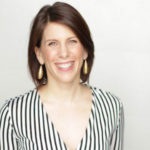Business coaches were once considered a luxury reserved for corporate executives whose organizations shelled out tens of thousands of dollars per hour to train their leaders to excellence.
But increasingly, coaches focused on small businesses have become mainstream. Today, the business coaching industry is a $11 billion sector made up of more than 56,000 firms in the United States, according to research institution IBISWorld. These services do not come cheap, with fees for even junior, noncertified coaches starting at $100 per hour, and leading-name consultants charging thousands of dollars hourly.
Many entrepreneurs swear by their coach’s guidance, and studies quantify their value. A Manchester Consulting Group study of Fortune 100 executives found an ROI of nearly six times the money paid for coaching services. The International Coach Federation (ICF), an accrediting organization for professional coaches, found that individual clients reported a median ROI of 3.4 times their investment. Meryl Moritz of the ICF says that a qualified business coach can make all the difference for an entrepreneur—if he or she is the right fit for the business owner and if that owner has the right expectations.
“When a lot of people think of a small-business coach, they think they will get a consultant who will tell them what to do to make their business sail,” says Moritz, who herself owns a professional coaching firm. “Instead, a good coach is someone who understands you, challenges you, and is the person you can count on to hold your towel, pat you on the back and force you back in the ring when you stumble. They give you the tools to be the leader you were meant to be.”
When scouting for a business coach, think about the following:
- What is the philosophy of the coach? Some are deeply spiritual and bring that to their work. Some are analytical, and others attack problems with tools from psychological research. So ask: What is your coaching philosophy? What kind of clients do you work with best? What are some examples of your coaching successes? How do you define success? When you have a sense of how the coach operates, consider whether their answers resonate with you.
- Don’t seek lookalikes. Moritz says it can be tempting to seek out a coach who has a background in your industry or shares a similar personal history. “You want someone who can get up to speed quickly on your industry and your goals and challenge you in new ways,” Moritz says. “The point is to find someone who is actually different than you are.”
- Does the person help you articulate your goals? While interviewing potential coaches, look for someone who can bring out the best in you and foster the changes that are important to your organization. “The changes should be noticeable and tangible to you,” Moritz says. “While coaching can feel therapeutic, it is not about being listened to and feeling good. They should help you co-produce a plan.”
- What are their credentials? In addition to the ICF, the Worldwide Association of Business Coaches and the International Association of Coaching are the best-known accrediting organizations. Some colleges also have business coach certificate programs, including Columbia University. But coaching is a largely unregulated industry, so knowing a practitioner’s credentials offers a sense of security that your investment will be with someone who has undergone supervised training and adheres to a code of ethics. Many accredited coaching programs ascribe to a code of ethics by which graduates are obliged to refer clients to other experts in the event they do not honestly feel they can help them.
Leanne Ely
Founder
Business: SavingDinner.com, an online menu planning service run from Charlotte, North Carolina
Coaches: Carrie Wilkerson and Cameron Herold
Results: Business doubled in the first year of working with a coach in 2009.
In 2001 I started the original menu planning website. But by 2008 there were 85 viable competitors doing really innovative stuff, and I had to change things. That was a rough year, and financially I was holding on for dear life.
Then it dawned on me that I had to do things differently. I found my first coach, Carrie Wilkerson, after buying one of her webinar products. We talked on the phone, and I liked her rags-to-riches story and her ethics. It was important that she understood who I was at that moment—a single mom trying to make it in business.
My jaw went slack when she quoted me the $10,000 price, but I took a deep breath and wrote the check. With just one change she more than made up for it: She had me double my prices and run a blowout sale on my old fees. I had not raised my rates since launching. She also advised me to let go of three of the four people on my payroll and change my social media strategy. I listened to every single thing, and within one year I’d doubled my revenue.
Carrie and I worked together for two years and remain friends. My company continued to grow; in 2014 I had 15 people working for me, and the business was in a completely different place. Then I needed to learn how to be a CEO. After reading his book Double Double (twice), I hired Cameron Herold in 2013. He helped me set very specific goals, create systems to reach those goals and assign numbers to every step in my business. For example, in 2013 I wanted to grow my revenue by 40%, so we set up a plan to reverse-engineer my business to make that happen—build a better content management system for my website, create better sales funnels and more precise marketing.
In years past I’d write down a goal, then a year later stumble upon it and say, “Oh! I did pretty good!” Now, thanks to my coach, I have specific projects in place to meet those goals. It’s like precision surgery. It seems the more money I invest in myself, the more I make. When you get off the phone with your coach, you are motivated to make the changes you agree on because the expert help is very expensive.
Justin Moore
Founder
Business: Elephant in the Room Men’s Grooming Lounge in Tulsa, Oklahoma
Coach: Clay Clark
Results: A second location opened in 2013 and was fully booked within three months. There are now five locations across Oklahoma.
Six months before opening the first location, I hired Clay. I wanted to ensure my idea was a success, and he has an excellent local reputation. Tulsa is recognized as a great place to start a small business, but even in a great economy I know lots of really smart people whose new businesses failed. I also liked Clay’s business model—he charged me a monthly retainer and a 5% commission on my sales.
Clay got Elephant in the Room off to a great start. Instead of trying to appeal to a general male audience, Clay helped me create a product and marketing that would target niche clientele, attracting these guys by giving away gift cards in affluent parts of town. He suggested the business run on a membership model. This provides a reliable income stream for the business while adding to the exclusive image that supports our brand. He also made some changes to our website, which boosted SEO incredibly. He even came up with our name, which is far more memorable than “B.Spoke,” which I had planned to use.
By enlisting Clay so early, he was able to help me craft a business plan and then introduced me to a banker who gave me a business loan in a time when capital was hard to come by. Each week Clay and I met on the phone for an hour, and about 80% of the conversation was the same each time: We ran through sales figures, sales funnels, the number of complaints received and how those figures changed over the previous week. Then we created steps for improving them immediately.
2½ years after we opened, both our locations were fully booked, with 800 memberships sold. Clay introduced me to a franchising firm, and we planned to sell 30 to 40 franchises each year. In building this business, he brought in a whole level of expertise that I did not have. He pulled out of me the success that this business has become.
Ben Cooke
Co-founder
Business: Lucid Public Relations, based in Los Angeles
Coach: Doc Barham
Results: Revenue and staff tripled in one year, while communication and company culture improved.
Until a client introduced me to Doc, I wasn’t even aware of the coaching industry—I thought that was only for corporate execs. At the time, my business partner and I had just launched the company and wanted to grow, but we knew from experience that it could be really difficult in our industry.
Right away I hit it off with Doc because we have a lot in common. We are both interested in alternative health care, share a background in psychology and agree that everyone’s personal and professional lives are intertwined. But Doc also introduced me to ways of thinking that opened up my world way beyond business.
For example, he helped me see that I have issues with passive aggression, which can be really toxic to an organization. He helped me work through that to consciously build a healthier office culture. Today we have a really strong company community where everyone enjoys coming to work, and as a result we are able to get a lot done. We did not have that before.
Doc and I also worked on concrete goals and techniques, like growing revenue by crafting a new sales pitch, networking and targeting the right kind of clients. One of Doc’s philosophies that stuck with me is “What got you to where you are is not necessarily going to get you where you want to be.”
I am not working continuously with Doc anymore, but he does come in a couple of times per year and gives a session to the entire staff. The most recent was about differentiating between zero-sum and non zero-sum strategies. Everyone was talking about it for weeks afterward.
I have since met several business coaches whom I know would not be a good fit for me. Finding the right one is really key—it just so happened that the first coach I met was the right one for me.
This article was published in June 2014 and has been updated. Photo by @vegasworld/Twenty20



